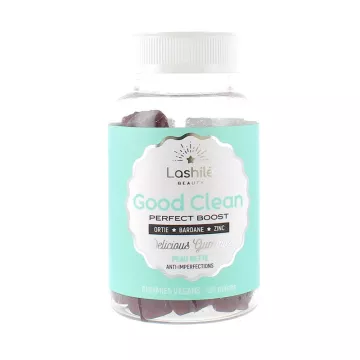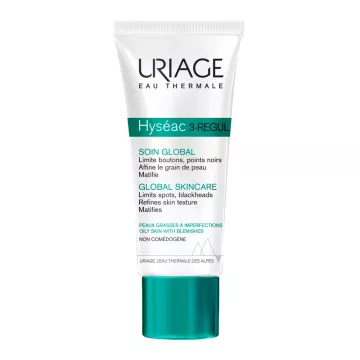

What is sebum?
Sebum is an oily substance produced by the sebaceous glands in the skin. It plays a crucial role in protecting and moisturizing the skin. Composed mainly of lipids, it forms a protective barrier on the skin's surface, helping to prevent dehydration and protect against external aggressors such as bacteria and pollutants.
Why is sebum important for the skin?
Sebum is essential for maintaining the skin's hydrolipidic balance. It prevents the skin from becoming dry and cracked, and contributes to its suppleness and softness. It also has antibacterial and antifungal properties, helping to prevent skin infections.
What causes excessive sebum production?
Several factors can lead to excessive sebum production:
What are the symptoms of excess sebum?
Excess sebum can manifest itself as :
How to regulate sebum production?
To regulate sebum production, we recommend :
What products are recommended for oily, acne-prone skin?
For oily, acne-prone skin, it's crucial to choose products specifically formulated to control sebum production and prevent breakouts. Here are a few recommendations:
How to get rid of blackheads caused by excess sebum?
To get rid of blackheads, which are often the result of excess sebum and dead cells clogging pores, you can follow these tips:
What's the difference between sebum and sweat?
Sebum and sweat are two different substances produced by the skin. Sebum is an oil produced by the sebaceous glands, while sweat is an aqueous liquid produced by the sweat glands. Sebum moisturizes and protects the skin, while sweat helps regulate body temperature and eliminate toxins.
How does sebum affect the scalp and hair?
Sebum is also produced by the sebaceous glands of the scalp. It plays an essential role in protecting and moisturizing hair. However, excessive sebum production can lead to an oily scalp, heavy hair and problems such as dandruff and seborrheic dermatitis. Conversely, a lack of sebum can make hair dry and brittle.
What are the differences between sebum and acne?
Sebum is a natural substance produced by the sebaceous glands to protect and moisturize the skin. Acne, on the other hand, is a skin condition that occurs when hair follicles become clogged with sebum, dead cells and bacteria. Excessive sebum production can contribute to the development of acne, but acne itself is the result of inflammation and infection of the clogged follicles.
What foods can influence sebum production?
Diet can have a significant impact on sebum production. Certain foods can stimulate the sebaceous glands and increase sebum production, including :
Can medical treatments help control sebum production?
Yes, several medical treatments can help control sebum production. Dermatologists may prescribe :
How does age affect sebum production?
Sebum production changes throughout life. During adolescence, the sebaceous glands are often hyperactive due to hormonal changes, which can lead to oily skin and acne. As we age, sebum production decreases, which can lead to drier skin and an increase in fine lines and wrinkles. It's important to adapt your skincare routine according to your age and your skin's specific needs to maintain a good hydrolipidic balance.